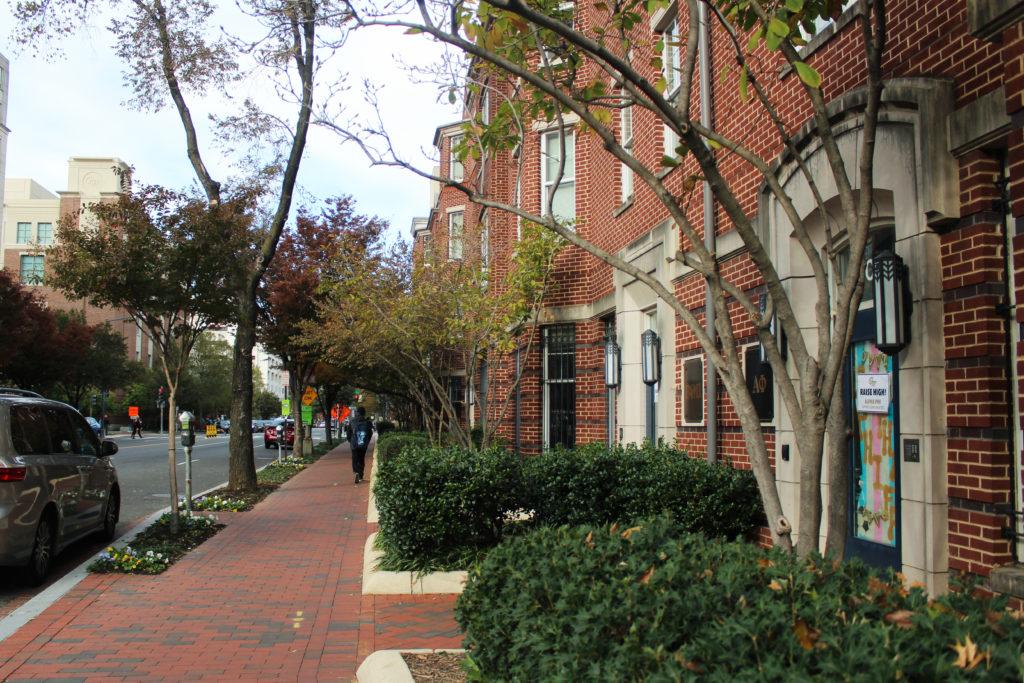Fifteen percent fewer men participated in formal fraternity recruitment in 2020 compared to 2019, officials said.
Of the 190 men who participated in recruitment, 177 were eligible to accept a bid – an invitation to join a fraternity – and 120 ultimately joined an Interfraternity Council chapter, officials said. Greek life experts said national decreases in university enrollment could shrink potential new member pools, and “misconceptions” about hazing and sexual assault within Greek life might deter men from joining a chapter.
IFC President Seamus Cullen did not return requests for comment. Jacob Liedke, the president of Delta Tau Delta fraternity, and Paul Vernick, the president of Phi Delta Theta, declined to comment. Eleven other fraternity presidents did not return requests for comment.
IFC leaders declined to disclose how many men participated in formal IFC recruitment in 2018 and 2017.
Delta Sigma Phi hosted informal recruitment events Sunday in Rome Hall and will hold an event on Wednesday, Feb. 26 in Phillips Hall, according to a flyer posted around campus buildings.
Todd Shelton – the chief communication officer for the North American Interfraternity Conference, the national governing body for fraternities – said the organization supports chapters that engage in informal recruitment to garner more members.
“The NIC is supportive of recruitment anytime 365 days a year if joining a fraternity meets the needs of individuals,” Shelton said in an email.
He declined to say what factors could contribute to a decline in recruitment numbers and what informal recruitment processes typically include. He declined to say how a shift to deferred recruitment might affect fraternity rush numbers.
Greek life experts said national enrollment declines decrease the number of potential pledges, and associations among fraternity life, hazing and sexual assault might turn students away from accepting a bid.
Donald Moore, the assistant director of fraternity and sorority affairs and the IFC adviser at Rutgers University, said “misconceptions” about the prevalence of hazing and sexual assault within fraternity chapters could deter potential new members from joining. He said recent high-profile incidents involving hazing allegations and binge drinking within fraternities could make some students hesitant to join.
Officials shuttered the Alpha Epsilon Pi fraternity in 2014 after a string of hazing and alcohol violations and shut down the Tau Kappa Epsilon fraternity in 2015 after the chapter’s national headquarters investigated a marijuana arrest involving a member.
Phi Kappa Psi returned to campus this spring following a four-year suspension in light of reports of sexual misconduct, disorderly conduct, hazing and underage drinking. The national organization of the Pi Kappa Alpha fraternity suspended the chapter in January.
Moore said increased emphasis on risk management within fraternities and increased media scrutiny on Greek life has raised public awareness of sexual assault and hazing-related incidents. He said fraternity leaders should continue to emphasize risk management strategies and educate potential new members about the “positive” aspects of Greek life, like access to leadership opportunities and long-lasting friendships.
IFC members instituted risk management roundtable discussions last spring to discuss how to mitigate risks like sexual assault and improve mental health awareness.
“Efforts have to be made to acknowledge where the problem areas are, but also work to overcome,” Moore said. “You can’t get so caught up in what people think that you stopped doing what’s right, and you can’t stop doing the work of fraternities and sororities because that then allows the negative parts of the experience to win.”
Lindsey Dever, the coordinator of leadership programs at Saginaw Valley State University, said declining university enrollment nationwide shrinks the pool of potential new fraternity members. Officials plan to cut undergraduate enrollment by 20 percent over the next five years amid nationwide high school graduate decreases.
She added that students now have more academic responsibilities than “ever before,” which can stifle students’ abilities to dedicate time to Greek life.
Dever added that Generation Z students, which Pew Research defines as people born after 1997, are more “financially focused” and might be less willing to pay for Greek life participation than past generations. She said negative media portrayals of Greek life could make students hesitant to participate in rush.
“First and foremost, the national trend of decreased enrollment due to fewer students attending college can have a direct impact on the sheer number of students at the university to be recruited by chapters,” Dever said in an email.
Johnny Robinson, the director of fraternity and sorority affairs at Oklahoma State University, said fraternities looking to increase membership should prioritize outreach to “nontraditional” members, like transfer students and students older than 22 years old.
He added that fraternities should view informal recruitment from a “365-day perspective” and continually bring in new recruits to sustain chapters.
“We need to be more open to students joining our organizations because I think it brings a different perspective and also diversifies backgrounds and experiences of our organization,” Robinson said.




